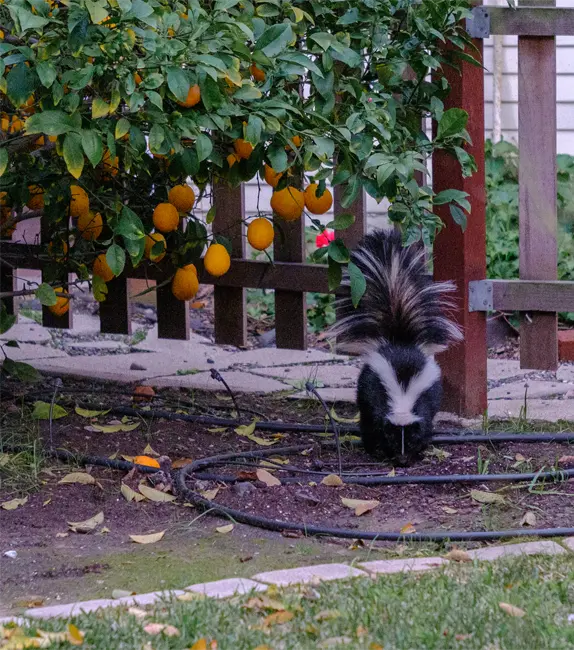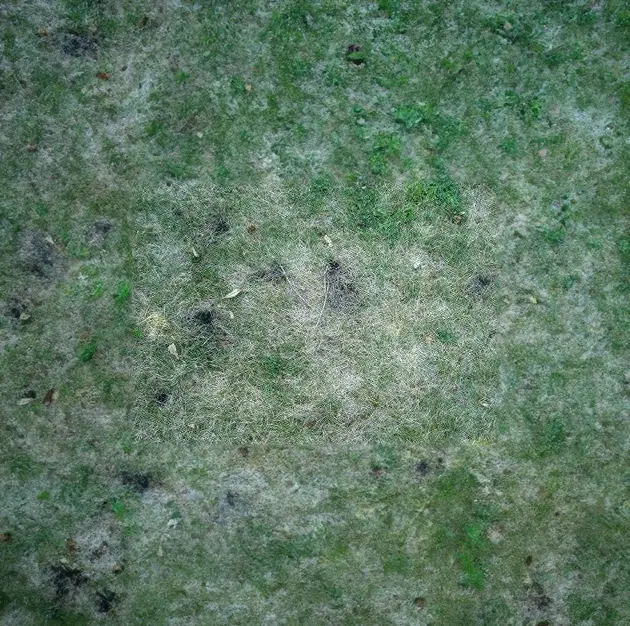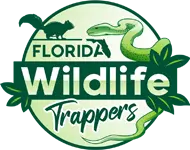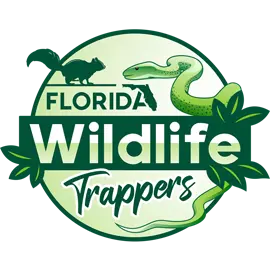Skunk Removal in Central Florida
Call Us Today at Advertise with Us
Skunk Removal Without the Stink Florida Wildlife Trappers' Specialty
Florida Wildlife Trappers specializes in skunk removal and control. Skunks are infamous for the pungent odor they spray as a defense mechanism. This strong smell is nearly impossible to remove from surfaces.
Plus, the smell can linger for weeks even after the skunk is gone. That’s why it’s crucial to get professional skunk removal as soon as you notice signs of an infestation on your Florida property.
Give Us a Call At 407-617-1193

How We Remove Skunks
Our wildlife technicians are highly trained in humane skunk trapping methods. We use cage traps that are specially designed not to trigger the skunk’s spraying reflex. Once the skunk is trapped, we cover the cage with a dark cloth to help keep the animal calm during transport. Then our technicians safely relocate the skunk to a suitable habitat away from people and pets.
To prevent the skunk from returning or new ones from entering, we identify and seal any holes or entry points on your property. We may also install skunk deterrents, remove food sources, and make other modifications to discourage future skunk activity.
Signs of a Skunk Infestation
Some of the most common indicators that a skunk may be living on your property include:
- A strong, lingering skunk smell, especially at night or early morning. This is the biggest giveaway.
- Small cone-shaped holes dug in your lawn or garden. These are made by skunks digging for grubs and other food.
- Flipped over garbage cans or bags that have been ripped open. Skunks have an excellent sense of smell and dig through trash for food scraps.
- The presence of skunk droppings around window wells, under porches, and near potential den sites. Skunk poop is tubular with blunt ends and may contain bits of undigested food like insect skeletons.
- Strange rustling or thumping noises coming from decks, sheds, or beneath buildings. This may indicate skunk activity.
Vegetation or lawn damage from skunks digging up roots and grubs.


Where Skunks Go on Properties
Skunks are highly adaptable animals and may den in a variety of areas on developed properties, including:
- Under decks, stoops, or porches
- Inside open sheds, garages, or crawl spaces
- Beneath buildings in gaps in the foundation
- Under steps leading down to basements or cellars
- Inside wood or brush piles
During the spring, female skunks seek denning sites to give birth and raise young kits. They may choose areas close to or even inside houses, such as under front stoops. This puts them in increased contact with people and pets, raising the risk of skunk spraying incidents.
Potential Health Hazards from Skunks
While skunks themselves do not directly transmit rabies to humans, they are a major carrier of the disease in the wild. If you are sprayed by or have any physical contact with a skunk, it’s vital to capture the animal for rabies testing if possible.
Skunk droppings contain parasites including roundworms, tapeworms, and rat lungworm which can cause illness in humans. coming into contact with skunk feces should be avoided, and any that is found should be promptly cleaned up while wearing gloves and a face mask.
Skunk spray also contains chemical irritants that can cause respiratory issues or burning eyes. Ventilate affected areas thoroughly and use protective equipment when cleaning.
How to Deter Skunks from Your Property
To prevent skunks from taking up residence on your land, make your property less attractive by limiting food sources and potential den sites. Here are some effective skunk deterrent methods
By limiting food sources and denying access to potential shelter, you can make your property far less attractive to skunks looking for a place to settle in and raise their young. Contact Florida Wildlife Trappers if you need professional assistance evicting skunks already on your premises. We use humane, effective methods to remove and relocate the animals while preventing future skunk problems.
Skunk Removal Cost
The cost of skunk removal depends on several factors:
- Number of skunks present. Large families or multiple skunks will take more time and effort to extract humanely.
- Extent of the infestation. Skunks that have been residing in an area for a while typically cause more damage that must be repaired.
- Location on the property. Extracting skunks from inside structures often costs more than simple eviction from under porches or sheds.
- Time of year. During spring when baby skunks are present, extra care must be taken to remove all kits and relocate to a wildlife rehabilitator.
- Prevention services needed. Sealing entry points, installing repellents, and making the property less attractive to skunks adds to the total skunk removal price.
At Florida Wildlife Trappers, our pricing is 100% transparent. After a thorough inspection, we provide a written estimate outlining the skunk elimination plan, with no hidden fees. We also offer reliable warranties and maintenance plans to prevent skunks from returning in the future.
Give Us a Call At 407-617-1193

